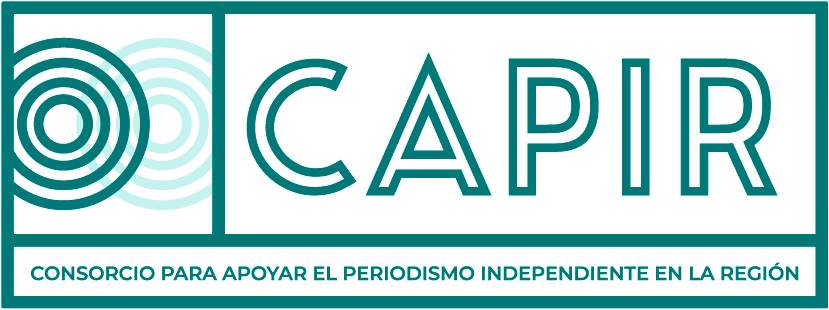Salvadoran President Nayib Bukele diverted funds from the development of municipalities to create an institution that decides what public works projects will be carried out and which companies will be hired to do so. He argues that the decision was made to end “corruption by the opposition” in municipalities. However, after almost two years, the government has illegally awarded contracts of up to $266.5 million in discretionary spending to 61 companies, of which those led by public officials, a former Nuevas Ideas candidate and party members stand out. Some of those companies are sanctioned, do not have the necessary experience and were created by businessmen under investigation for corruption.
Text: Andrés Dimas, Jaime Quintanilla, Claudia Palacios y Carlos Salvador
Illustration: Carlos Sánchez, Donají Marcial
Translation: José Rivera
English edit: Amy Patricia Morales
On December 27, 2021, six weeks after President Nayib Bukele and his administration created the Office for Public Works (Dirección de Obras Municipales – DOM), Marta Alicia Argueta de Gutiérrez, a businesswoman from eastern El Salvador and member of the Nuevas Ideas party, attended an event where 127 public works contracts amounting to $335.5 million were awarded. However, Gutiérrez is not just any party member or guest at the event; she became a government contractor only ten months before and had run for councilwoman under the leadership of her friend, Sara Elizabeth Zelaya de Bermúdez, now mayor of El Triunfo. Bermúdez is not just any public official either; she is the sister of Alejandro Zelaya Villalobo, former minister of finance, co-founder of Nuevas Ideas, the ruling party, and one of the architects of DOM, an institution that, according to pro-Bukele propaganda, was established to “defeat past corruption” and bring development to Salvadoran municipalities.
On May 1, 2021, the same day that Bukele and his party removed the attorney general and five judges from the Constitutional Chamber, Bermúdez took office in the municipality. But Gutiérrez was not elected to the council, Concejo Plural. However, the State and DOM gave her the opportunity to contribute to the municipality ten months later. In fact, the institution, led by five co-founders and leaders of Nuevas Ideas, awarded her 16 public works contracts for projects in El Triunfo and other municipalities in the department of Usulután.
According to official records, previous administrations awarded contracts to Gutiérrez’ company, Construtodo, valued between $5,000 and $25,000. During Bukele’s administration, the company received several contracts amounting to $1.85 million.
Million-dollar allocation by DOM
The 16 public works contracts awarded to Construtodo are part of 500 contracts issued by DOM between December 2021 and May 2023. FOCOS, a Salvadoran media outlet, analyzed every official document, checked company records at the Registry of Commerce (Registro de Comercio), looked up names and data, cross-checked that information with lists of candidates and Nuevas Ideas party members and lists of hired companies as well as those disqualified by the State.
After a five-month investigation, analysis of the data showed that DOM, without disclosing any technical criteria, allocated $335.5 million in discretionary funds to 127 companies.
Some of those companies were sanctioned by the State or received contracts within a framework of discretionary spending that in some cases violated finance law (Ley de la Entidad). A total of $80.3 million was allocated to 46 of these companies, 15 of which had little or no previous experience and were created from DOM contracts, receiving $56.7 million. According to the Registry of Commerce, another 22 companies that had not registered any activity in the previous five or ten years, were brought out of a hiatus three to six months before or after DOM was established and received $7.8 million in contracts.
Among the companies that received contracts, 53.2% of spending, or $178.6 million, was allocated to a privileged group. Constructora MECO, a Costa Rican company, received $66.3 million for five public works between December 2021 and April 2023. MECO management was prosecuted twice for corruption in Costa Rica and Panama; they allegedly paid bribes in exchange for public works contracts. DOM has allocated 20% of the million-dollar spending to MECO, a favorite company for carrying out “insignia” public works such as Surf City II in eastern El Salvador.
Constructora Díaz Sánchez (DISA) was awarded three contracts amounting to $15 million. One of those contracts, which amounted to $5.6 million, was awarded through “limited bidding,” a shady process questioned by anti-corruption and accountability experts in which companies are summoned, but do not participate in a public bidding.
“The process is shady because invitations are aimed at specific companies, and the government could be interested in an ‘initial selection’ of the competitors. In other words, competition is limited, and when that’s the case, contracts may be awarded on the basis of family relations or friendship,” said Ruth López, accountability and anti-corruption expert at Cristosal, a non-governmental organization.
In addition to being favored by DOM, DISA made a bid for the construction of Hospital El Salvador during the covid-19 pandemic and was questioned by the government’s Court of Accounts (Corte de Cuentas) in an audit of the Secretariat of Health (MINSAL) and the Secretariat of Public Works and Transportation (MOP) conducted from January 1 to September 30, 2020. To date, it’s not known whether the comptroller’s office, led by a former Nuevas Ideas candidate since August 22, 2022, made sure that sanctions were imposed.
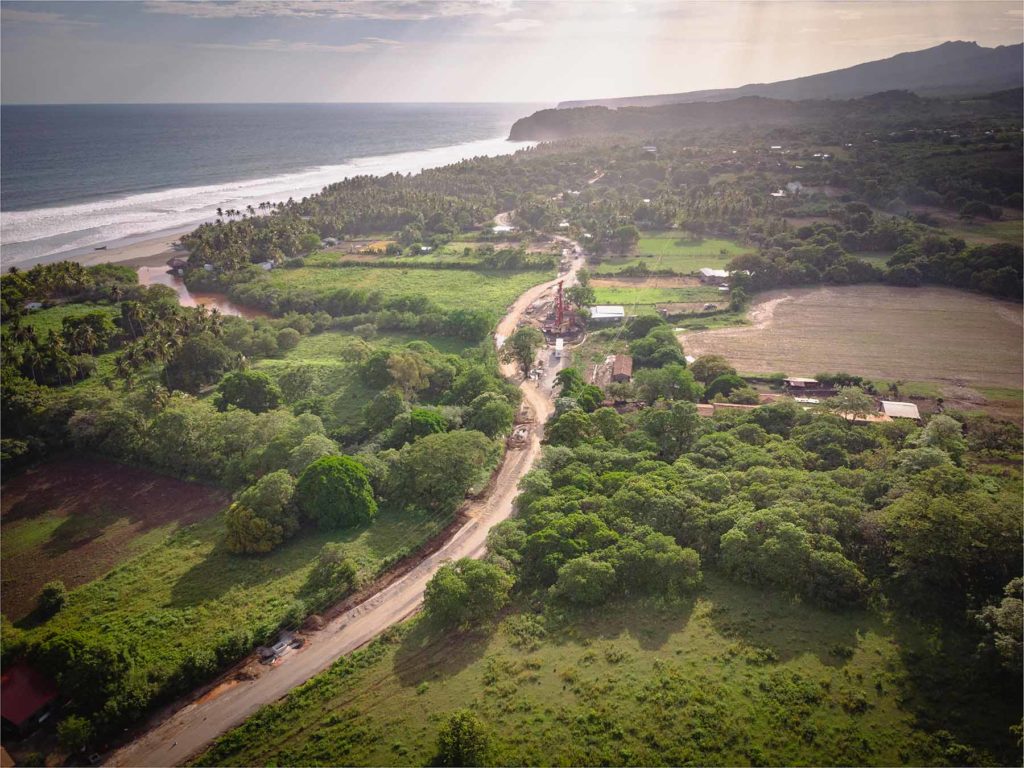
Calidad y Técnicas de Construcción (CATECO) was awarded $23.7 million. Two of those contracts, amounting to $7.3 million, were awarded through the dubious process known as limited bidding.
Tobar S.A. de C.V. is also part of this small club and was awarded contracts that amounted to $20 million, of which one was revoked due to “non-compliance”. It was disqualified from receiving contracts for a five-year period in May 2022. One month later, the owner of Tobar was arrested and prosecuted for corruption at Comisión Ejecutiva Portuaria Autónoma (CEPA), where he worked as manager in Acajutla, a seaport in El Salvador.
In short, 20.5% of the discretionary spending ($68.8 million) was allocated to 66 of the 127 companies through contracts. The other half, companies without experience, led by Nuevas Ideas members, favored by the government or others which received contracts without complying with DOM’s own laws received 79.4% of the budget, at least $266.5 million.
A construction company that carries out public works
Marta Alicia Argueta Gutiérrez could not get ahold of her associate to find out how they managed to receive contracts from DOM. She says that her associate, who is also her daughter, “has a better understanding of the situation.”
Her company, Construtodo Ingenieros y Arquitectos, is located a few blocks away from the main plaza in El Triunfo, a town founded in the late 17th century. It’s an old house with a tile roof and a particular sign that reads: “Construtodo. Constructions and remodeling. We create environments and designs exclusively adapted to the needs and budget of our clients.”
Argueta’s office is located elsewhere, at the side of the Panamericana highway, adjoining a property where trucks and machinery with DOM logos are kept, which are owned by her husband’s property, Dios Provee S.A. de C.V.
The FOCOS team talked to Argueta at her home in the garage. She spoke softly and seemed nervous, as if she didn’t want to be heard. She said that she’s a member of Nuevas Ideas and she was a candidate in the 2021 elections. Although she hesitated at first, she admitted that she’s a friend of the former minister’s sister. She acknowledged that she has received 16 contracts from DOM, which is presided over by executives affiliated to Nuevas Ideas, but she doesn’t see any problems.
When asked if her company’s sudden growth had anything to do with her connections to the Zelaya family, Argueta responded, “I think that anyone who thinks like that is absolutely wrong because we made bids and won contracts but not because we have connections. We even won some of the contracts because nobody else made a bid.”
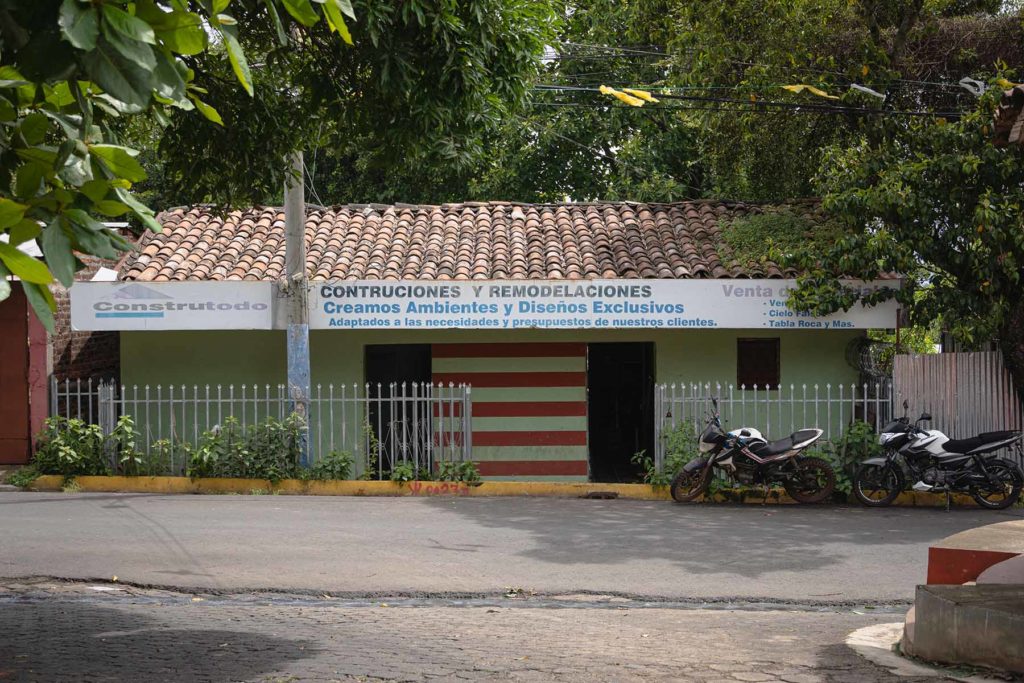
The company that she co-founded with Rosa Margarita Gutiérrez Argueta in September 2013 is not promoted on Facebook as a construction company that carries out public works, but as a company that provides bricklaying and plumbing services to homes and sells bricks and cement.
According to the Accountability Portal, Construtodo has carried out public works on only two occasions. The company was awarded contracts for small projects at Hospital Nacional de Santiago de María, between 2016 and 2018, but no project surpassed a cost of $5,000; the second project for the San Rafael Oriente mayor’s office consisted in paving a road in May 2017, which had a cost of $25,000.
Four years later, Argueta ventured into politics and campaigned for public office along with her friend, former Minister Zelaya’s sister. “We know each other and we campaigned together. Before the campaign, we were not close friends, but we had a friendship; we come from the same town and both go to the Catholic church.”
In December, although no bid was made, ten contracts were awarded to her company to conduct geotechnical and topographical studies in twelve municipalities of Usulután, including El Triunfo, for $78,850. Two months later, three more contracts were awarded to the company to provide the same services in Mercedes Umaña, Berlín and San Francisco Javier for $33,350.
In April, only four months after the first ten contracts were awarded, DOM awarded contracts to the company to perform hydraulic concrete public works in the municipalities of Alegría, Berlín and San Buenaventura for $1.74 million.
Argueta’s company outsourced the hydraulic concrete public works to Dios Provee S.A. de C.V., the company she co-founded with her husband, Víctor Gaspar Gutiérrez in 2007, which leased heavy machinery and performed paving works. She says that it’s common practice because Construtodo doesn’t have the equipment nor the ability to perform these tasks on its own. Unlike its sister company, Dios Provee has more experience completing public works with different institutions. However, according to COMPRASAL, a public spending site, it was sanctioned and disqualified from receiving contracts for five years for “providing false information in a public bidding” to the Road Maintenance Fund (Fondo de Conservación Vial – FOVIAL).
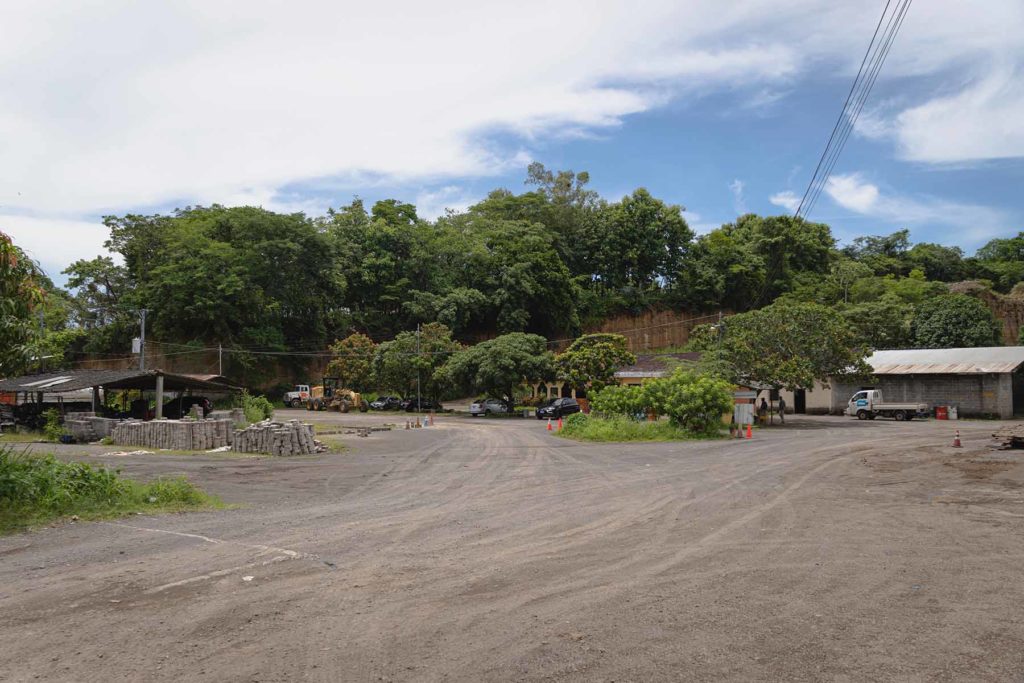
DOM’s board of directors, who awarded the contracts to Construtodo, were not aware of the marriage relationship and the association between the two companies. The board comprises five founders and managers of the ruling party, including Claudia Juana Rodríguez de Guevara, its financial secretary and one of Bukele’s close associates in the family business; María Ofelia Navarrete, minister of local development and leader of Nuevas Ideas; and a representative of the Finance Ministry appointed by its former minister, Alejandro Zelaya Villalobo.
Argueta insisted that receiving contracts from an institution led by members of a political party who supported her campaign for councilwoman doesn’t constitute a conflict of interest. “The reality is that there’s no conflict of interest with DOM. Yes, I helped Sara Zelaya and I still support her because she has worked for the people but that’s all,” she said.
Sanctioned party members and contractors
In addition to the contracts awarded to Construtodo, DOM awarded contracts to five companies owned by six members of Nuevas Ideas that amounted to $6.6 million. Some of these companies were sanctioned by the State before they were hired to carry out public works. For example, Constructora e Inversiones Laínez Cruz, established in 2013 by Pedro Eriberto Laínez Cruz, who was a Nuevas Ideas member in 2018, according to a payroll published by the party on Diario El Mundo on July 10, 2018.
Between March 2022 and May 2023, this company won contracts to conduct topographic surveys and to fix potholes in municipalities of Cabañas, a department in north central El Salvador, for $2.07 million.
Constructora e Inversiones Laínez Cruz has experience carrying out contracts for the State and municipalities presided by opposition parties. It was sanctioned by the Superintendent for Competition (Superintendencia de Competencia – SC) for anti-competitive practices while receiving public funds from DOM. On December 13, 2021, the mayor’s office in Guacotecti, which was presided over by the PCN party, an ally of the ruling party, filed an accusation against the company. Laínez Cruz had agreements with WalterVenez S.A. de C.V., a construction company, to fix prices or purchase conditions during public biddings organized by the local municipality. WalterVenez was also benefited by DOM; it won five contracts that amounted to $1.58 million to fix potholes in the department of Cabañas between May and December 2022.
On December 7, 2022, one year after the accusations against the companies, the Superintendent for Competition found them liable for price fixing and imposed a $30,417 fine on each one of them. Both contractors filed an appeal, but it was dismissed, and the ruling was upheld on January 20, 2023.
DOM didn’t award any more contracts to WalterVenez since then, but they did award contracts to Constructora e Inversiones Laínez Cruz, whose owner is a member of Nuevas Ideas. The company was commissioned to build a health unit in the municipality of Nombre de Jesús in Chalatenango in May 2023. Despite administrative sanctions by a public institution, it received $547,349 in the process.
Other companies led by members of Nuevas Ideas have something in common: They were awarded contracts through a discretionary procedure called “limited bidding.” For example, Marpa de Velis Alirio Paiz Díaz is a construction company who signed $1.2 million worth of contracts.
Miguel Ángel Martínez, owner and manager at Marpa, told FOCOS that he was unaware of his associate’s connections to the party and denied any “influences” during public bidding.
Another company, which is not registered as a public works contractor and has not reported any balance sheets to the State since its founding in 2017, was awarded $251,516.23 worth of contracts. An additional company, established 18 months before DOM came into force, only had experience working in one municipality and that sufficed to win eight contracts amounting to $215,050.
Public officials acting as DOM contractors
On November 23, 2021, Congress passed a bill concerning DOM, Simplified Law for the Acquisition of Public Works (Ley Simplificada de Adquisiciones para Obras Municipales), on the pretext of expediting public biddings for the country’s “development.” However, the bill had no effect.
According to Article 4, paragraph b, “public officials of any municipality or the legal entities at which they are owners, associates, shareholders, administrators and directors” cannot act as offerers nor contractors to DOM.
According to a May 2023 publication by FOCOS, in November 2022, when DOM awarded a contract to Mexican company Gallo Hermanos to rebuild the San Miguelito market in San Salvador, they overlooked the fact that the company is associated to a public official at the mayor’s office in San Martín, which is presided by the ruling party.
Gallos Hermanos, the second most benefited company by DOM’s million-dollar budget allocation, won a contract that amounted to more than $33.6 million to rebuild the San Miguelito market in the capital. The company was not able to access resources in the country and abandoned the project in May. In the aftermath of the publication and the lack of accountability by authorities, DOM sanctioned and disqualified the company from receiving contracts for five years.
Moreover, DOM has awarded contracts to public officials in other branches of government. On March 4, 2022, Diseño, Desarrollo y Construcción (Dideco) S.A. de C.V. signed Contract 20/2022 for $416,146.47 to pave parts of the road in the San Juan and Carlota neighborhoods, municipality of Sesori in San Miguel. This company, established in 2015, is led by Roger Antonio Grande Bercián and his wife, Vinda Arely Moreno de Grande. She is also an employee at the Court of Accounts (Corte de Cuentas de la República – CCR), whose magistrates swore her in as director of the Regional Office of San Miguel (Oficina Regional de San Miguel) on July 15, 2022.
The company subsequently won a $1.35 million contract to pave roads in the municipalities of Comacarán, San Miguel and El Carmén, in the department of La Unión.
Although there are no legal provisions that explicitly disqualify CCR employees, a conflict of interest could exist because the comptroller’s office is responsible for auditing public spending at every institution, including DOM, from whom Moreno de Grande’s company has benefited.
According to Ruth López, although the Simplified Law for the Acquisition of Public Works doesn’t impose any restrictions on public officials of audit bodies, Moreno de Grande’s case could be a violation of the Government Ethics Law (Ley de Ética Gubernamental).
“The Ethics Law explicitly states in Article 6, paragraph g, that public officials are not allowed to hold positions in the private sector, undermining impartiality or leading to a conflict of interest when said officials perform their duties,” López said.
FOCOS requested an interview with Moreno de Grande through the institution’s press office. A government representative said he would see to it that the request is completed, but by the time this piece was published, there was no response.
Intertwined businesses
On January 18, 2022, two months after DOM was established, René Rivera Alvarado and Rolando Barrientos Calero established Inversiones Rivera Barrientos (INRIBAR) to compete for public works contracts.
However, their business partnership began in 2009, when Barrientos established Inversiones Tecleñas (ITEC), to which Rivera Alvarado joined. Years later, Barrientos left the company to establish a third one, Icivil Infraestructura, one of the companies involved in the questioned construction of the third phase of Hospital El Salvador during the pandemic. The project initially consisted of building a first-class hospital, but it eventually became a vaccination center that cost $19 million, according to La Prensa Gráfica.
INRIBAR, ITEC, and Icivil are located in the same office in the Escalón neighborhood.
Four contracts amounting to $5.9 million were awarded to two of the three companies associated with Rivera Alvarado and Barrientos Calero. At least half of that amount was allocated through limited bidding.
The first contract was awarded to ITEC on December 20, 2021, for $1.2 million. The second one was awarded to INRIBAR on April 1, 2022, less than four months after it was established, for $783,190.94.
The third one was awarded to ITEC 20 days later, on April 21, for $1.7 million. Two weeks later, on May 4, 2022, FOVIAL disqualified ITEC from receiving contracts by DOM for five years because they “provided false information during public bidding.” DOM stipulates in the Simplified Law that companies sanctioned by other public institutions are not eligible to carry out contracts.
Rivera Alvarado and Barrientos Calero continued to participate in public biddings and won contracts. As in the case of the family who owns Construtodo and Dios Provee in Usulután, these two business associates participated in the public bidding with a different company, INRIBAR. On June 16, Rivera Alvarado, who signed the first contract awarded to ITEC, signed the $2.2 million contract awarded to INRIBAR, as its representative, to fix potholes in Ciudad Delgado.
According to DOM law, Article 5, subsection 3, it’s prohibited for offerers and legal representatives to seek contracts with other companies to elude or avoid offering and hiring restrictions.
Among the beneficiaries of a $25.6 million allocation to carry out public works, 12 companies stand out because their members have friendship and family connections in two different companies.
Companies without financial resources carry out million-dollar public works
People from all walks of life went to the event organized by DOM, which awarded million-dollar contracts to companies whose budget—according to the Registry of Commerce—did not suffice to cover 5% of the public works’ total cost. Four companies that did not have the financial means to complete the projects received $8.07 million worth of contracts.
Construtodo is one of those companies. By April 2022, DOM had awarded the last three contracts, amounting to $1.74 million, to that company, but it didn’t meet the contractual requirement of having access to at least 5% of the public works’ total cost. According to the balance sheet submitted to the Registry of Commerce, the company fell short of that percentage by $30,000 and reported $9,300 in losses. In addition, they had not updated income and expenditure reports in five years; reports from 2016, 2017, 2018, 2019 and 2020 were submitted to the Registry just three months before winning the million-dollar contracts.
Argueta de Gutiérrez acknowledges that the company’s budget wasn’t sufficient, so she requested two loans, $60,000 and $100,000, to Banco Hipotecario, a state-owned bank, which “provided the assistance” she needed.
However, not all companies had such luck.
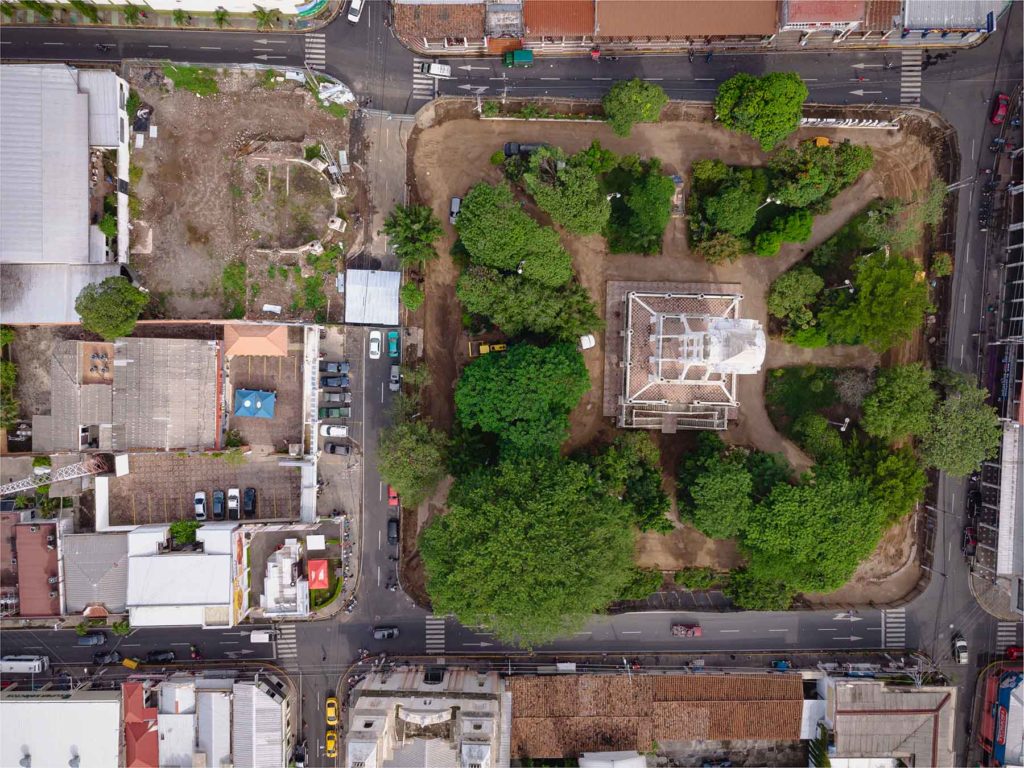
On September 2, 2022, DOM published on its Twitter account: “We want to transform the Historic Center and Municipal Palace of San Vicente. We’ll make it happen soon.”
Almost one year after the publication, the project has been not completed yet because DOM hired Consorcio de Inversiones para el Futuro (CIPF), a company without experience carrying out public works, permanent qualified staff and the financial resources to launch the million-dollar project.
According to accountability reports by the State and COMPRASAL, CIPF was established in 2019, but didn’t receive any contracts from the State in three and a half years.
Between September and November 2022, before receiving the contract, CIPF was hiring “engineers or architects with experience in buildings of two stories or more.” During that period, they published on Facebook that they conducted an “on-site visit” in San Vicente “to renovate the National Palace” and attached a photo of the property destroyed by the 2001 earthquake.
DOM promptly awarded Contract 140/2022, amounting to $4,860,940.32, to CIPF to rebuild the Municipal Palace of San Vicente and to renovate the historic center, but the company could not even cover 5% of the project’s expenses. According to the most recent balance sheet provided by the Registry of Commerce, the company’s budget amounted to $13,939.84, 18 times less than the amount DOM demands ($243,047) to verify the financial standing of companies.
The project was not completed. On May 31, DOM announced the termination of contracts and sanctions against two companies: Gallo Hermanos, which was supposed to build a new market in San Salvador and had the support of a municipal employee; and CIPF, which was sanctioned on May 12 for not completing the project.
One day after sanctions against Gallos Hermanos and CIPF were made public, the resignation of Álvaro O’Byrne, executive director at DOM, co-founder of Nuevas Ideas and Bukele’s ally since he was mayor, was announced. By August, no explanation about his resignation had been given.
A representative of Consorcio de Inversiones para el Futuro, who wished to remain anonymous, told FOCOS that that was the first contract awarded to the company and they’re not responsible for the project since December 2022, six months before DOM announced that the company was sanctioned and disqualified. Regarding the reasons for revoking the contract, he had no comment.
Two additional companies are involved in the project: D. C. E. Construcciones e Inversiones; Diseño y Supervisión, Control de Calidad. According to balance sheets submitted to the Registry of Commerce, when the contracts were awarded to the companies, they didn’t have 5% of the public work’s total cost. Twenty-two contracts amounting to $8 million were awarded to the four companies.
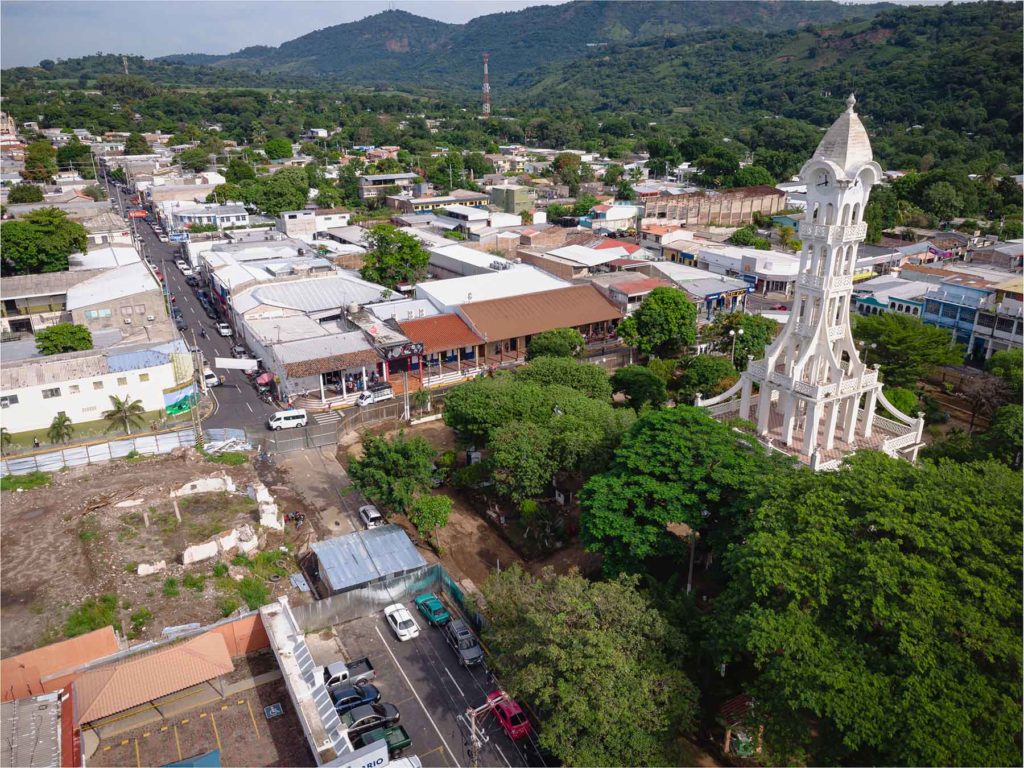
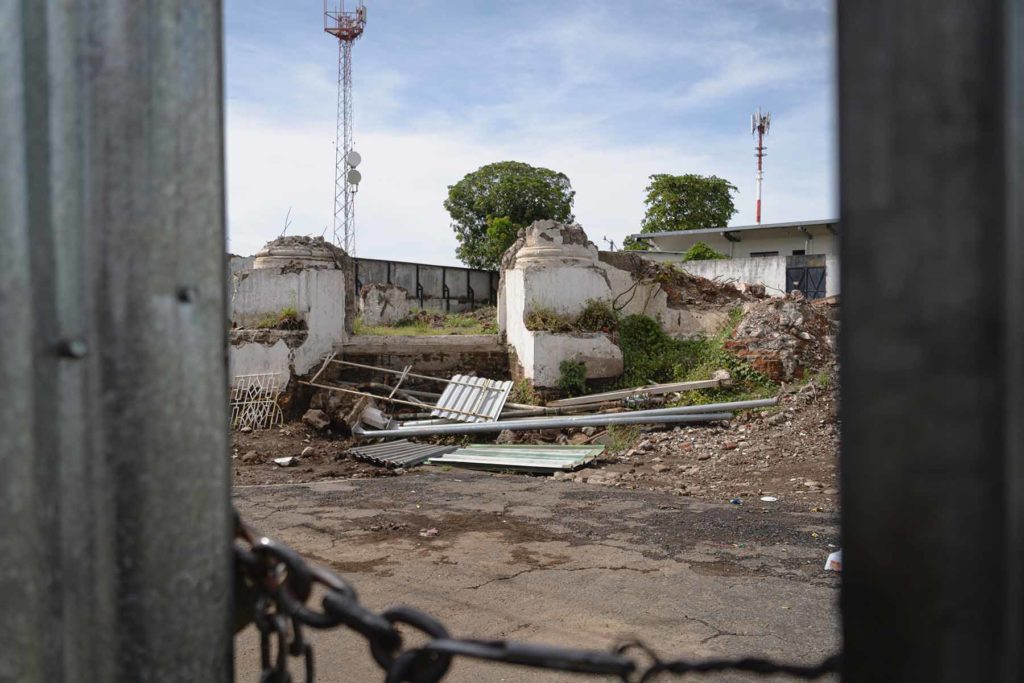
Companies benefited to succeed
Months before and after DOM was established by President Bukele, 15 companies, including four subsidiaries of foreign companies were established in El Salvador, a country determined to see them succeed by awarding them 46 contracts amounting to $56.7 million.
Among these companies, which already had a client (the State) upon their foundation, a Salvadoran subsidiary of the Mexican company Promoción y Distribución CINCO earned the most profits in the 2023 Central American and Caribbean Games, according to the National Sports Institute (Instituto Nacional de los Deportes – INDES). This company, which made a profit of $60 million in preparation for the Games, received a plus $5 million contract from DOM to build a basketball sports center in San Salvador. However, construction should have begun in the first trimester of 2023, but it hasn’t to date.
Prodisa, a Mexican company established in the 1980s with experience building sports centers, was registered in El Salvador on July 4, 2022. At the time, they had already won four contracts amounting to $39.4 million from the National Sports Institute to remodel the national gym “Adolfo Pineda” and “Mágico González Stadium” in preparation for the 2023 Games. According to INDES’ records, the contracts were illegally awarded because the company is not registered at the Registry of Commerce.
By then, DOM had already launched an initial public bidding for the construction of a sports center in El Salvador. On June 18 at 8 p.m., DOM summoned companies interested in participating in the public bidding to build a basketball sports center in a property close to the national gym, a project which was already awarded to Prodisa.
This project was never announced by INDES and was not part of remodeling and construction projects for the 2023 Games made public by Yamil Bukele, head of INDES and the President’s brother, in October 2021.
According to a Twitter post by DOM from June 23, the new sports center would be located a few meters away from the gym and would have a basketball court, terraces for up to 1,000 spectators, dressing rooms and full court equipment.
By the end of December, after a public bidding process tainted by irregularities, at the third time companies were summoned, DOM awarded Prodisa a contract that amounted to $5,148,413.25 to build the sports center. DOM, consistent with their shady activities, did not announce the decision and has not issued any further statements.
On July 26, 2023, DOM quietly placed Prodisa in the list of providers that are sanctioned and disqualified from offering to carry out contracts for a period of fives until 2028. To date, sanctions to the company have not been justified, and the reasons for not completing the sports center remain unknown.
Luis Bernardo Tévez Rivas, who introduces himself as Prodisa’s former legal representative that provides “legal assistance to the company’s operations in the country” assured FOCOS that DOM issued a resolution to revoke the contract. Regarding this matter, he maintains that the company’s representatives and administrators “are analyzing the different dispositions and the reasons for the resolution.”
However, he added that the company requested to suspend the contract “given the different commitments by the Government and the execution of the Central American and Caribbean Games. For these reasons, the project was not launched and no construction involved in the contract was completed.”
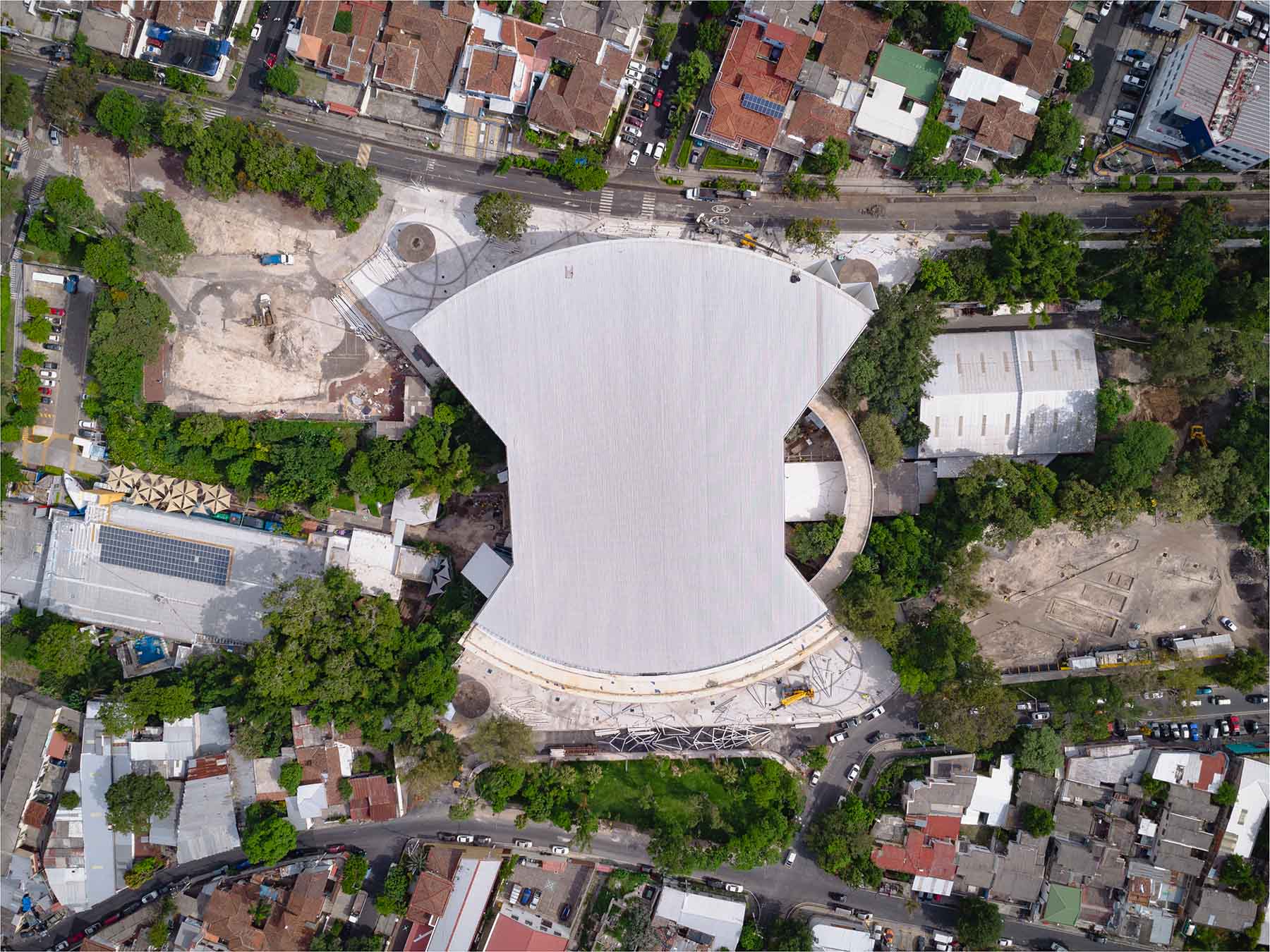
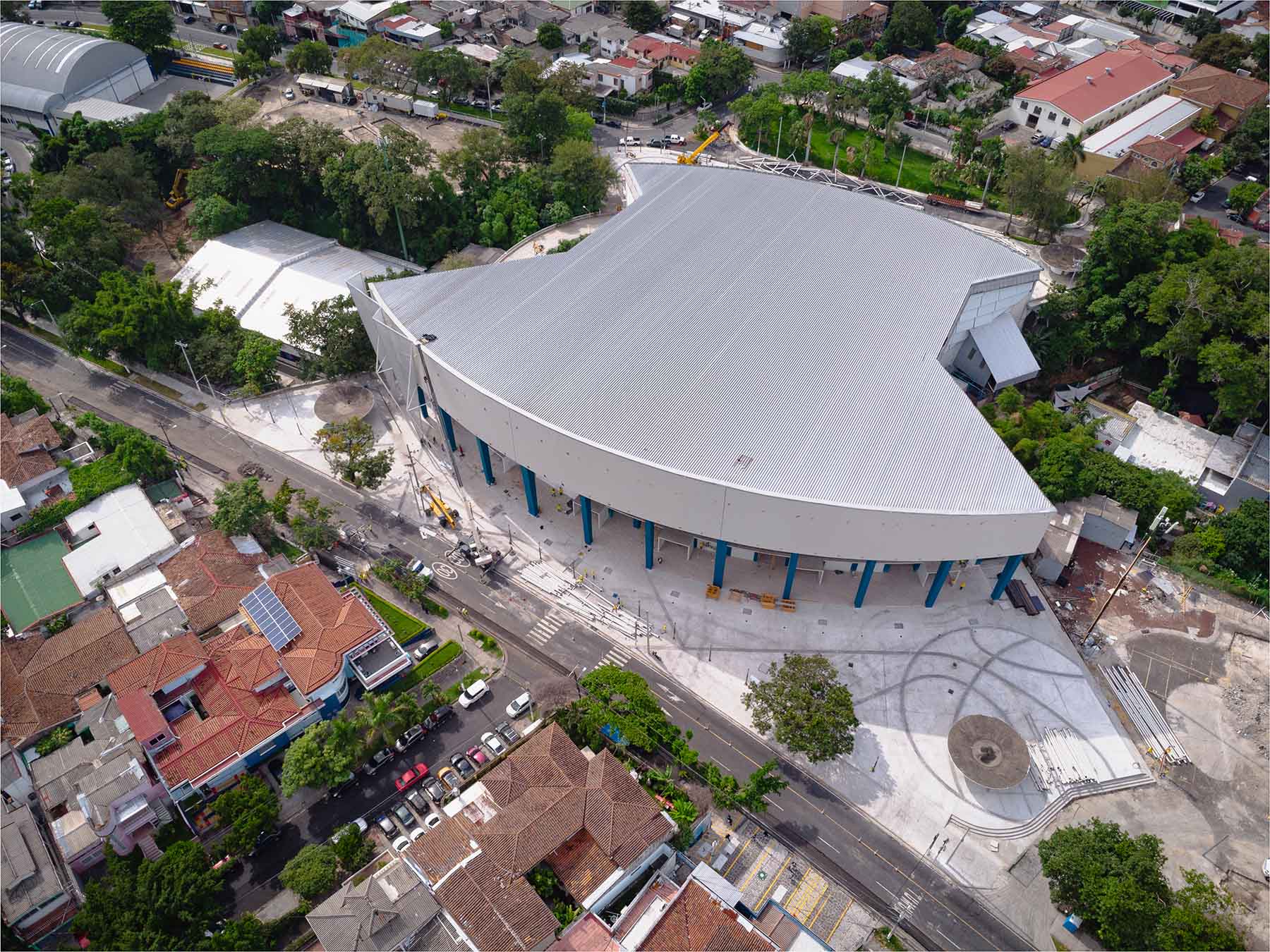
DOM also favored companies that were “brought back to life” when the institution organized public biddings. They awarded $7.8 million worth of contracts to companies that had no balance at the National Registry Center (Centro Nacional de Registros – CNR) or updated them to compete at the biddings. In total, 22 companies that swiftly updated their information won contracts.
“I think that the Government is very strict”
On November 17, 2021, 40 days before Gutiérrez received dozens of contracts, President Bukele, acting as a propagandist, published on Twitter, “This is the beginning of something big… @Obra Municipal #DOM.” The post was accompanied by a video of “an unprecedented project for our municipalities. This is the path to achieve our dreams, so that we will soon see the completion of projects that were not achieved in decades. They promised us many things, but then they stole from us…” the narrator says.
It’s been more than two years and DOM’s party continues; many million-dollar projects came to a halt or have been suspended due to the lack of financial means.
Marta Alicia Argueta Gutiérrez’ daughter didn’t arrive at Dios Provee’s offices. Tired of waiting, she calls for an employee working on one of the projects.
Jocelyn Quintanilla arrives and introduces herself; she works at the administrative departments of the companies owned by Gutiérrez Argueta. According to Quintanilla, the initial ten public works contracts received in December 2021 that amounted to $77,851 were not completed, and the process to revoke those contracts is underway.
“We were operating within a time frame because those were the first projects launched by DOM. We didn’t have information about the land’s topography, so we submitted a low bid. In addition, they didn’t provide the financial expenses to complete the projects within the time frame they expected,” Quintanilla said.
“We didn’t have experience on topography with DOM, but we did with other institutions that were not as demanding,” she added, seconded by Gutiérrez.
Argueta reflects about the “connections” between a company and a public institution, “I’ve never had connections with institutions or anyone else, but they say that when you have connections, you have less problems too ja ja ja.”
When asked if she ever talked about her businesses with DOM to Sara Elizabeth Zelaya de Bermúdez, her friend and the mayor of El Triunfo, or to anyone from Nuevas Ideas, Gutiérrez said she didn’t. She said that the mayor “was surprised” when she found out about the contracts won by the company.
“I think that the Government is very strict, and no one should lend a hand to anyone,” she said laughingly.
*Note by FOCOS: The media outlet sought statements from owners of all 127 companies or natural persons who received contracts by DOM between August 21 and 31, 2023. Only four companies agreed to comment: Construtodo, Marpa, Prodisa and Inprovi. Another company gave off-the-record statements, CIPF. Thirty-five companies said they would give statements but didn’t. Seven companies were reached by email or instanting messaging, but none replied. Forty-six companies didn’t answer phone numbers provided to the public. We couldn’t reach 34 companies, 14 of which didn’t report anomalies in the contracts. We also sought statements from DOM authorities, the former minister Alejandro Zelaya, the Presidential Palace and Nuevas Ideas. By the time this piece was published, they had not replied.
This investigation was possible with support from the Consortium to Support Independent Journalism in Latin America (CAPIR), which is led by the Institute for War and Peace Reporting (IWPR).


